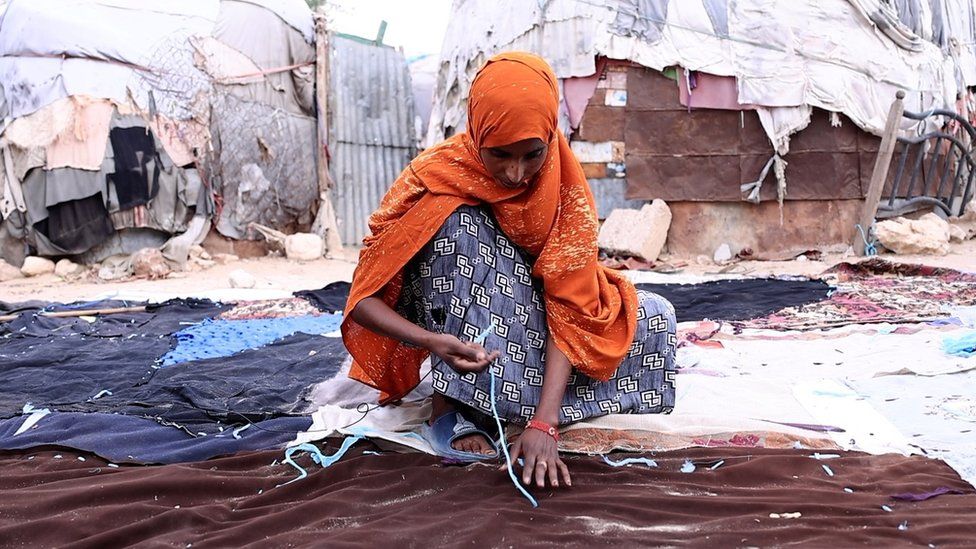-

-
-
Loading

Loading

Hodan Artan, a cleaner in Hargeisa, Somaliland, is patching up her home's roof with fabric and blue string. As a single mother, she can only afford a mud hut with a cloth roof for herself and her baby daughter. But recently, she discovered an app called Daariz that has taught over 410,000 people in the Horn of Africa how to read and write. Encouraged by her friends, Hodan started studying on her phone in her spare time and within two months, she has made significant progress in reading and comprehending Somali short stories. Hodan's story is not unique in Somaliland, a region that has long struggled with illiteracy. Following a civil war in 1991, Somaliland declared independence and although it is not internationally recognized as a separate state, it has a democratically elected government and has experienced more stability than the rest of Somalia. However, the legacy of war, lack of infrastructure, and recurrent drought have led to some of the lowest literacy rates in the world. According to UNICEF, around three out of four adults cannot read and write, and one in four children is out of school. In 2019, the Somaliland government and UNICEF launched a joint investment in education to reach more children and ensure they complete at least their primary education. Despite these efforts, progress has been slow, and there are still significant challenges. Many of the population in Somaliland are pastoralists and live in rural and isolated areas, making it difficult to sustain education for children and families. Various education projects have been launched by local authorities and international NGOs to address this issue and reach isolated children. Ismail Ahmed and his charity, the Sahamiye Foundation, believe they have found a solution. Ismail Ahmed, who left Somaliland for the UK as a refugee, had a successful career in business and technology. Inspired by his struggle to teach Somali to his children in London during the COVID-19 lockdown, he developed an app called Daariz, which uses mobile phones to tackle the learning crisis in Somaliland. The free app can be used offline, making it accessible to people in remote areas and those on the move. Ismail Ahmed believes that mobile phones are the future of education, as they enable users to become functionally literate in their own language without the need for traditional classroom education. The app has been successful, with thousands of users achieving functional literacy in their mother tongue. One of the app's users, Mubaarik Mahdi, a camel herder outside Hargeisa, reflects on the impact of learning to read. Previously, he struggled with business transactions and reading his customers' names on payment slips. Now, he feels more confident in his interactions with customers on his mobile phone and has even started buying books. For Hodan Artan, learning to read has changed her perspective and aspirations. She no longer feels limited by her current job and hopes to secure a more fulfilling position in the future, utilizing her newfound skills and knowledge. Overall, the Daariz app has proven to be a valuable tool for combating illiteracy in Somaliland and providing opportunities for personal and professional growth for individuals like Hodan and Mubaarik.